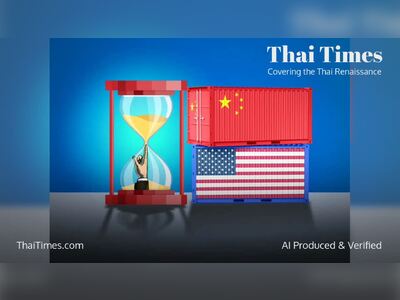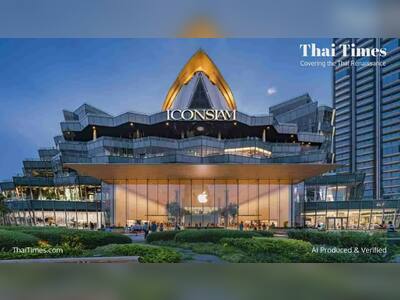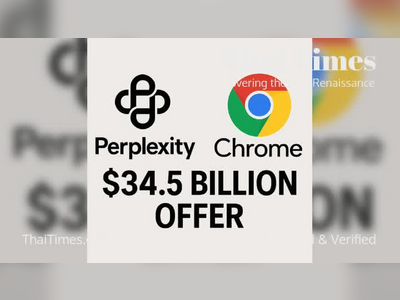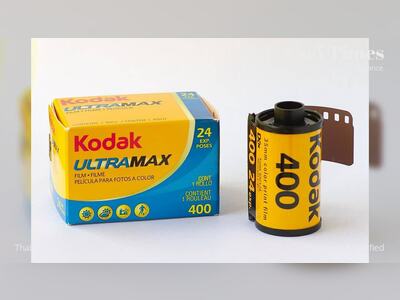Prada Weighs Versace Purchase: A Tactical Decision in the Luxury Fashion Industry
Prada considers the potential acquisition of the luxury label Versace, amidst shifting ownership and market dynamics, after a prior acquisition attempt by Tapestry fell through.
In a move that might transform the global luxury fashion market, Italian fashion giant Prada is reportedly contemplating acquiring Versace, a leading brand in the luxury sector.
Italian reports indicate that this potential acquisition is being considered as Capri Holdings, Versace's parent company, reassesses its options after canceling a previous agreement with Tapestry, a U.S. luxury goods conglomerate.
The deal with Tapestry, valued at $8.5 billion, was dropped in November after encountering significant regulatory obstacles in the United States.
The failure of this deal, which aimed to create a large American luxury conglomerate, has led Capri Holdings to reevaluate its strategy and explore alternative options for its brands, including Versace and Jimmy Choo.
Amid this scenario, Capri has reportedly engaged Barclays to explore potential sale opportunities for its portfolio.
Prada emerges as a potential buyer, currently collaborating with Citi, an investment bank it has partnered with in past endeavors.
Market reactions have been mixed, with Prada’s stock declining by 0.4% on the Hong Kong Stock Exchange, yet the company’s interest in Versace highlights its ambition to expand its presence in the luxury sector.
Prada, experiencing robust growth with an 18% sales boost in the third quarter, could leverage the acquisition to strengthen its position within the competitive luxury fashion arena.
Founded in Milan in 1978 by the late Gianni Versace, this luxury brand has become a global icon, fueled by its daring designs and high-profile celebrity endorsements.
Now led by Gianni’s sister, Donatella Versace, the brand accounts for a significant portion of Capri’s revenues, comprising about one-fifth of its total income for the fiscal year ending March 2024.
With $5.2 billion in sales, Versace remains a crucial component of Capri's portfolio.
For Prada, this potential acquisition presents a strategic chance to diversify and enrich its luxury brand collection.
Acquiring Versace would grant Prada access to Versace’s established market influence, strong brand identity, and the chance to integrate Versace’s high-end products into its operations.
Such a move may expand Prada's customer base and market share in a swiftly changing industry.
However, acquiring Versace could come with challenges.
The luxury fashion market is fiercely competitive, and assimilating a major brand like Versace into Prada’s existing operations might pose logistical and cultural challenges.
Moreover, while Prada's recent performance has been commendable, with a marked sales surge despite a general slowdown in the fashion sector, it remains uncertain how the company will handle the financial and operational demands of acquiring such a notable brand.
The luxury fashion industry has been undergoing substantial changes, with consumer preferences shifting, new competitors emerging, and rising pressure to embrace digital trends.
The collapse of Tapestry’s deal with Capri exemplifies how the landscape is changing, with major players reassessing their strategies in response to market forces and regulatory challenges.
As Prada deliberates this potential acquisition, the broader effects on the luxury fashion market remain to be seen.
If the deal proceeds, it could signal a new phase of consolidation within the industry, as brands seek to pool resources and market power to maintain competitiveness.
Conversely, if the deal does not materialize, Capri’s ongoing search for strategic options for Versace and its other brands could lead to further shifts in the luxury goods market.
Ultimately, the potential Prada-Versace acquisition highlights the ongoing transformation of the luxury fashion industry and the growing impact of financial and strategic decisions in shaping the sector's future.
Regardless of whether Prada proceeds with the acquisition, the luxury market will continue to undergo significant changes, driven by both established industry leaders and emerging disruptors.
Italian reports indicate that this potential acquisition is being considered as Capri Holdings, Versace's parent company, reassesses its options after canceling a previous agreement with Tapestry, a U.S. luxury goods conglomerate.
The deal with Tapestry, valued at $8.5 billion, was dropped in November after encountering significant regulatory obstacles in the United States.
The failure of this deal, which aimed to create a large American luxury conglomerate, has led Capri Holdings to reevaluate its strategy and explore alternative options for its brands, including Versace and Jimmy Choo.
Amid this scenario, Capri has reportedly engaged Barclays to explore potential sale opportunities for its portfolio.
Prada emerges as a potential buyer, currently collaborating with Citi, an investment bank it has partnered with in past endeavors.
Market reactions have been mixed, with Prada’s stock declining by 0.4% on the Hong Kong Stock Exchange, yet the company’s interest in Versace highlights its ambition to expand its presence in the luxury sector.
Prada, experiencing robust growth with an 18% sales boost in the third quarter, could leverage the acquisition to strengthen its position within the competitive luxury fashion arena.
Founded in Milan in 1978 by the late Gianni Versace, this luxury brand has become a global icon, fueled by its daring designs and high-profile celebrity endorsements.
Now led by Gianni’s sister, Donatella Versace, the brand accounts for a significant portion of Capri’s revenues, comprising about one-fifth of its total income for the fiscal year ending March 2024.
With $5.2 billion in sales, Versace remains a crucial component of Capri's portfolio.
For Prada, this potential acquisition presents a strategic chance to diversify and enrich its luxury brand collection.
Acquiring Versace would grant Prada access to Versace’s established market influence, strong brand identity, and the chance to integrate Versace’s high-end products into its operations.
Such a move may expand Prada's customer base and market share in a swiftly changing industry.
However, acquiring Versace could come with challenges.
The luxury fashion market is fiercely competitive, and assimilating a major brand like Versace into Prada’s existing operations might pose logistical and cultural challenges.
Moreover, while Prada's recent performance has been commendable, with a marked sales surge despite a general slowdown in the fashion sector, it remains uncertain how the company will handle the financial and operational demands of acquiring such a notable brand.
The luxury fashion industry has been undergoing substantial changes, with consumer preferences shifting, new competitors emerging, and rising pressure to embrace digital trends.
The collapse of Tapestry’s deal with Capri exemplifies how the landscape is changing, with major players reassessing their strategies in response to market forces and regulatory challenges.
As Prada deliberates this potential acquisition, the broader effects on the luxury fashion market remain to be seen.
If the deal proceeds, it could signal a new phase of consolidation within the industry, as brands seek to pool resources and market power to maintain competitiveness.
Conversely, if the deal does not materialize, Capri’s ongoing search for strategic options for Versace and its other brands could lead to further shifts in the luxury goods market.
Ultimately, the potential Prada-Versace acquisition highlights the ongoing transformation of the luxury fashion industry and the growing impact of financial and strategic decisions in shaping the sector's future.
Regardless of whether Prada proceeds with the acquisition, the luxury market will continue to undergo significant changes, driven by both established industry leaders and emerging disruptors.














